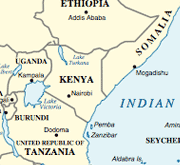KEY WORDS & DEFINITIONS WE USE
-
Heshima (Swahili): Respect: Honor; Dignity
-
Maisha (Swahili): Life
-
Refugee: Someone who "owing to a well-founded fear of persecution based on race, religion, nationality, membership of a particular social group or political opinion, is outside the country of his nationality, and is unable to, or owing to such fear, is unwilling to avail himself of the protection of that country.”
-
Separated Children: Children separated from both parents, or from their previous legal or customary primary care-giver, but not necessarily from other relatives. These may, therefore, include children accompanied by other adult family members.
-
Unaccompanied Children: Also called unaccompanied minors, are children who have been separated from both parents and other relatives and are not being cared for by an adult who, by law or custom, is responsible for doing so.
-
Urban Refugee: A recognized refugee who has settled in an urban center.
-
Asylum Seeker: A person who, from fear of persecution for reasons of race, religion, social group, or political opinion, has crossed an international frontier into a country in which he or she hopes to be granted refugee status.
-
Sexual Gender-Based Violence (SGBV): Term used to collectively refer to violent acts that are primarily or exclusively committed against women. Similar to a hate crime, this type of violence targets a specific group with the victim's gender as a primary motive. The overwhelming majority of victims/survivors of sexual and gender-based violence are women and girls. Sexual and gender-based violence includes much more than sexual assault and rape. Although it may occur in public contexts, it is largely rooted in individual attitudes that condone violence against women and girls within the family, the community and the culture.
-
Protracted Refugee Crisis: The United Nations High Commissioner for Refugees (UNHCR) defines a protracted refugee situation as "one in which refugees find themselves in a long-lasting and intractable state of limbo. Their lives may not be at risk, but their basic rights and essential economic, social and psychological needs remain unfulfilled after years in exile."


